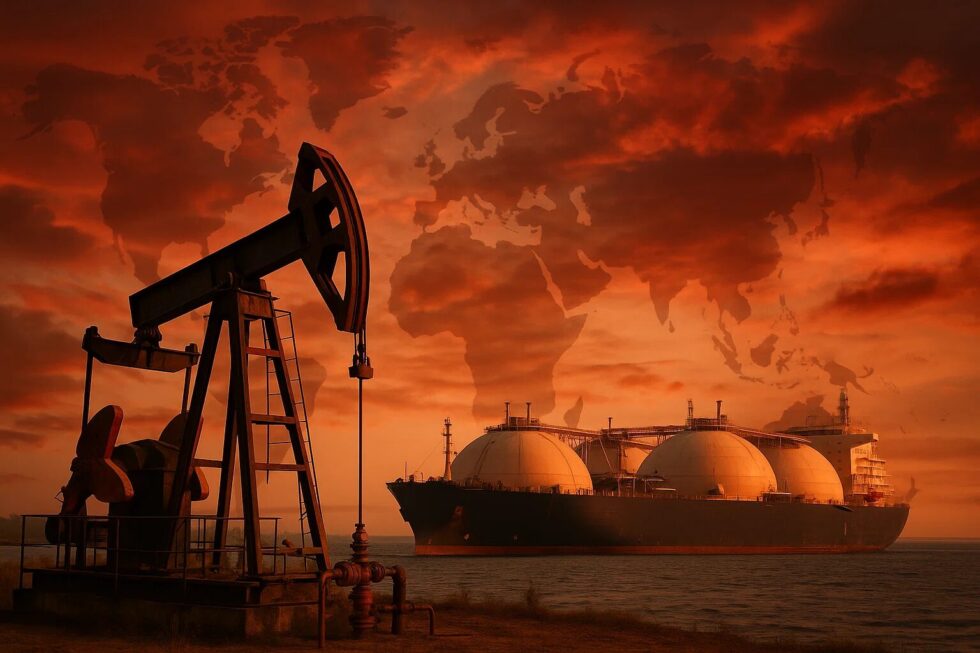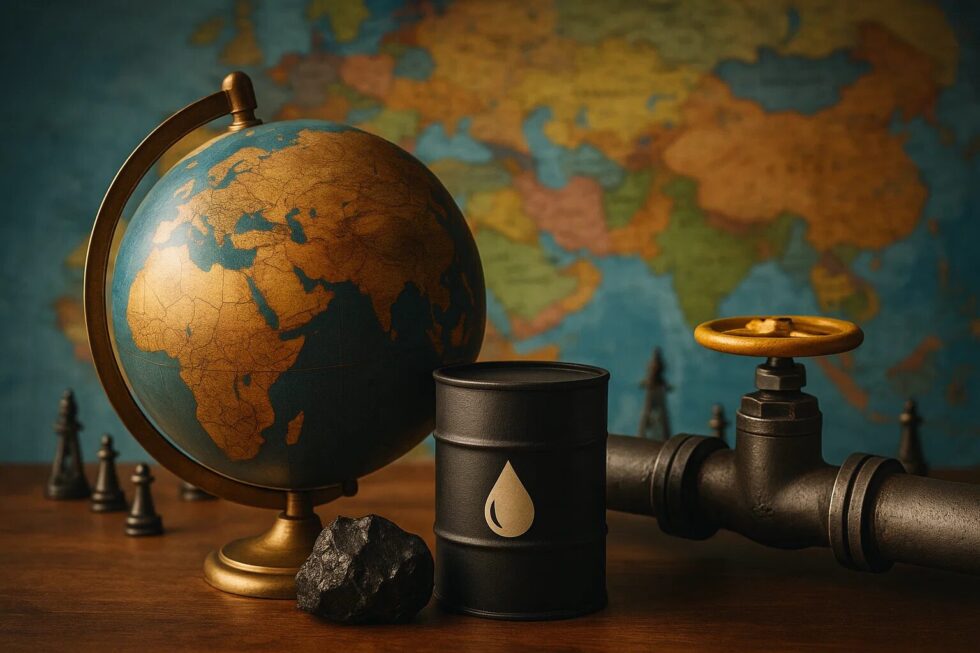Why is the global oil and gas market shaped by geopolitics in Germany

Global oil and gas market trends have long been defined not only by supply and demand but also by geopolitical developments that affect Germany as one of Europe’s largest energy importers. Energy security, price stability, and political relations with suppliers such as Russia, the Middle East, and the United States have become critical factors in recent years. Germany, which once relied heavily on Russian natural gas, has shifted its strategy toward diversification and renewable energy, but the challenges remain significant. The war in Ukraine, sanctions against Russia, and OPEC+ decisions continue to shape global markets and Germany’s energy policies. At the same time, LNG terminals on the German coast, new pipeline projects, and political debates in Brussels highlight how interwoven energy and geopolitics have become. According to analysts, Germany’s dependency on global oil and gas prices also affects inflation and industrial competitiveness, making energy one of the key issues of the decade, as reported by G.business.
Germany’s dependency on oil and gas imports
Germany does not have significant domestic oil or natural gas reserves, making it heavily dependent on imports. More than 95% of its oil and gas comes from abroad, historically dominated by Russia, Norway, and the Netherlands. Following the energy crisis of 2022, Germany accelerated the construction of LNG terminals in Wilhelmshaven, Brunsbüttel, and Stade, allowing the import of liquefied natural gas from the United States and Qatar. Despite these measures, high energy prices continue to burden industries such as chemicals, automotive, and steel. Political tensions with Russia and debates within the European Union about energy sanctions have pushed Germany to rethink its long-term strategy. This dependency raises critical questions about sovereignty and resilience in global crises.
- 95% of oil and gas imported
- LNG terminals built in Wilhelmshaven, Brunsbüttel, Stade
- Top suppliers: USA, Norway, Qatar, Netherlands
- High energy costs impacting German industry
- EU sanctions reshaping supply chains
The role of OPEC+ and global pricing
Oil prices are strongly influenced by OPEC+, the alliance of oil-producing countries led by Saudi Arabia and Russia. Germany, as a major importer, has limited influence over OPEC+ decisions but feels the consequences directly. When OPEC+ reduces production, prices surge, causing inflationary pressure in Germany. Conversely, oversupply stabilizes markets but undermines investment in alternative energy. German policymakers follow OPEC+ meetings closely, as they affect not only fuel prices at the pump but also the competitiveness of exports. For example, in 2023 Brent crude prices fluctuated between $70 and $95 per barrel, influencing German companies’ costs and household expenses. The dynamic interaction between OPEC+, US shale production, and renewable investments creates an unpredictable environment for German industries.
Recent Brent crude prices (2023–2024):
| Month | Average Brent crude price (USD/barrel) | Impact on Germany |
|---|---|---|
| Jan 2023 | 85 | Rising household heating bills |
| Apr 2023 | 77 | Lower inflation rates |
| Sep 2023 | 94 | Industry cost pressure |
| Feb 2024 | 72 | Slight relief in fuel prices |
The Ukraine war and sanctions on Russia
The Ukraine conflict radically reshaped Germany’s energy map. Before 2022, 55% of Germany’s gas imports came from Russia via pipelines such as Nord Stream 1. After the invasion, EU sanctions reduced imports to almost zero, forcing Germany to scramble for alternatives. LNG imports grew by 30%, while Norway increased its pipeline supply. However, these shifts came at higher costs: German households paid record-high energy bills in 2022, and industries reported production cuts. Politically, the crisis accelerated debates about energy independence and the pace of renewable energy adoption. Germany also had to provide subsidies to stabilize households and companies, costing over €200 billion under the “Doppel-Wumms” relief package. This highlights how geopolitics and conflict directly affect economic stability.
- Pre-2022: 55% of gas from Russia
- Post-2022: near-zero Russian imports
- €200 billion relief package introduced
- LNG imports increased by 30%
- Norwegian supplies expanded significantly
Germany’s LNG infrastructure and diversification strategy
To overcome dependence on Russian pipelines, Germany invested heavily in LNG infrastructure. Floating terminals in Wilhelmshaven and Brunsbüttel were completed in record time in 2022–2023. Plans for permanent onshore terminals are expected to cost over €10 billion. Contracts were signed with QatarEnergy and US suppliers, ensuring diversified long-term supply. However, critics argue that these investments may lock Germany into fossil fuel reliance for decades, contradicting climate goals. The challenge is balancing short-term security with long-term sustainability. Additionally, storage facilities in Rehden and Haidach were filled to over 95% capacity ahead of winter 2023, ensuring stability against potential supply shocks. This demonstrates how infrastructure and policy must align with geopolitical realities.
Key German LNG projects:
- Wilhelmshaven FSRU (operational since 2022)
- Brunsbüttel FSRU (operational since 2023)
- Stade LNG terminal (planned by 2027)
- Long-term contracts with QatarEnergy and US firms
- €10 billion investment in infrastructure
European Union’s role in Germany’s energy security
Germany does not operate in isolation; its energy policies are intertwined with EU decisions. Brussels plays a decisive role in negotiating collective gas purchases, coordinating sanctions, and funding green transitions. The EU’s REPowerEU plan, launched in 2022, aims to reduce Russian energy dependency by two-thirds and invest €300 billion in renewables and hydrogen projects. For Germany, this provides both opportunities and constraints. On one hand, EU solidarity mechanisms reduce the risk of blackouts; on the other, common pricing systems limit national flexibility. Germany is also lobbying for hydrogen corridors that connect North Africa with Central Europe, reflecting its role as both an energy consumer and innovator.
- EU REPowerEU budget: €300 billion
- Target: cut Russian gas imports by 2/3 by 2030
- Focus on renewables and hydrogen corridors
- Shared purchasing to stabilize prices
- Germany pushing for cross-border hydrogen infrastructure
The future: renewables, hydrogen, and geopolitics
Germany has set ambitious climate goals to phase out coal by 2038 and achieve climate neutrality by 2045. This requires scaling up wind, solar, and hydrogen energy. However, the transition is deeply connected to global geopolitics. Hydrogen imports from Morocco, Chile, and Australia are being discussed, while European cooperation on offshore wind is intensifying. The challenge lies in ensuring stable prices during the transition, as volatile oil and gas markets continue to impact Germany. Policymakers are aware that dependency might simply shift from Russian gas to critical raw materials from other regions. The future of Germany’s energy lies in balancing innovation, sustainability, and global partnerships.

Future priorities for Germany:
- Climate neutrality by 2045
- Coal exit by 2038
- Expansion of offshore wind and solar capacity
- Hydrogen imports from Africa, Latin America, Australia
- Strategic reserves to stabilize supply
Germany’s position in the global oil and gas market shows how deeply geopolitics defines its economy, industry, and future energy policy. The dependence on imports, the vulnerability to OPEC+ pricing, and the consequences of the Ukraine war forced Berlin to make radical decisions, from LNG terminals to multi-billion-euro subsidies. At the same time, the EU framework and ambitious climate neutrality goals require Germany to balance short-term energy security with long-term sustainability. The transformation toward hydrogen and renewables is not only a technical challenge but also a geopolitical one, as it shifts dependencies from fossil fuels to critical materials and international partners. Ultimately, Germany’s experience illustrates how energy markets are never isolated from global politics but are a direct reflection of them.
Stay connected for news that works — timely, factual, and free from opinion — and insights that matter now: What drives youth savings in Germany: where millennials and Gen Z invest today